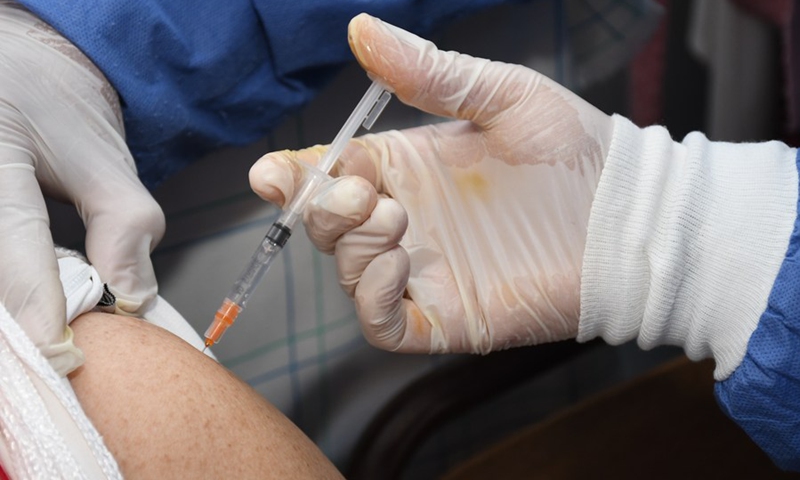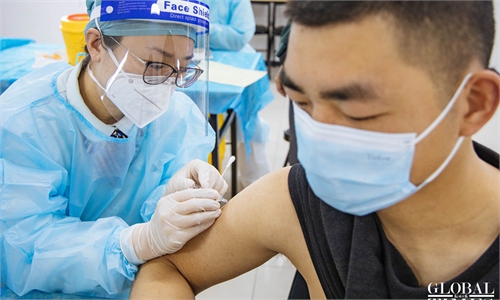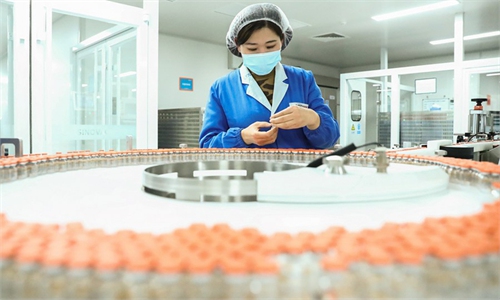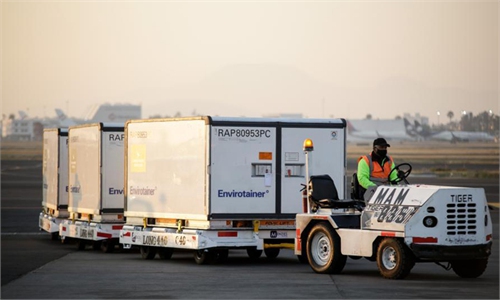
A medical worker administers a dose of Chinese Sinopharm COVID-19 vaccine to a recipient in Rommani, Morocco, on March 3, 2021.(Photo: Xinhua)
Data collected for Chinese COVID-19 vaccines have not shown that mutated coronavirus sequences have a significant impact on the efficacy of those vaccines, but China's vaccine manufacturers are conducting follow-up experiments of their COVID-19 vaccines on the mutated strains, as some have started to inject a third shot and monitor its efficacy.
Media reported the United Arab Emirates has started administering a third dose of the China-developed, two-dose Sinopharm vaccine for some groups to observe the immune system response as part of a scientific study.
The Global Times learned that Sinopharm and Sinovac are doing research on whether a third dose would enhance antibody levels and overall efficacy of the vaccines against the coronavirus, and how effective the vaccines are on mutated sequences.
A source close to the matter who preferred not to be named told the Global Times on Monday that a third dose is part of follow-up research to monitor and improve efficacy.
Wang Junzhi, an academician and member of the national vaccine R&D specialist group, said on Monday that Chinese vaccine producers have collected data and evaluated the efficacy of the vaccines against variants. There is no significant decrease in the neutralization activity against mutated sequences including the mutation first discovered in South Africa, Wang said.
Sinovac, another producer of inactivated vaccine, is conducting laboratory studies to track how the coronavirus mutates and to discuss potential treatment. The company's CEO Yin Weidong told the Global Times earlier that they are also conducting experiments on how a third booster shot would affect the protection level.
The coronavirus keeps mutating during circulation and some key mutations could render vaccines ineffective, Wang said. To prepare for that risk in advance requires close monitoring of the virus, timely evaluation of current vaccines, and the enhancement of vaccine development to tackle key mutations, he stressed.
There have been reports that mRNA vaccines showed lower efficacy for some mutated sequences, sparking wider concerns over whether vaccines can outpace mutations.
Pfizer is also giving booster shots to some people who received the first dose more than half a year ago, citing variants of the coronavirus as reasons for the study. The company also announced plans to explore variant-specific vaccines in the future, media reported in late February.
Moderna, another mRNA vaccine developer, has reportedly finished making a variant-specific vaccine to target the B.1.351 variant (the one first detected in South Africa), and is ready to begin a Phase 1 clinical trial for it.



